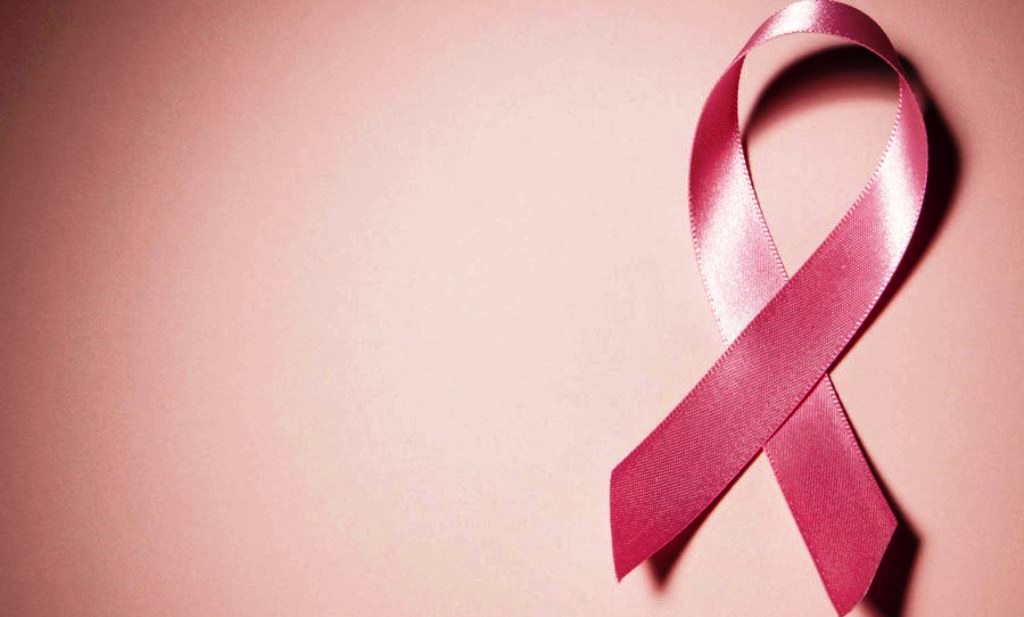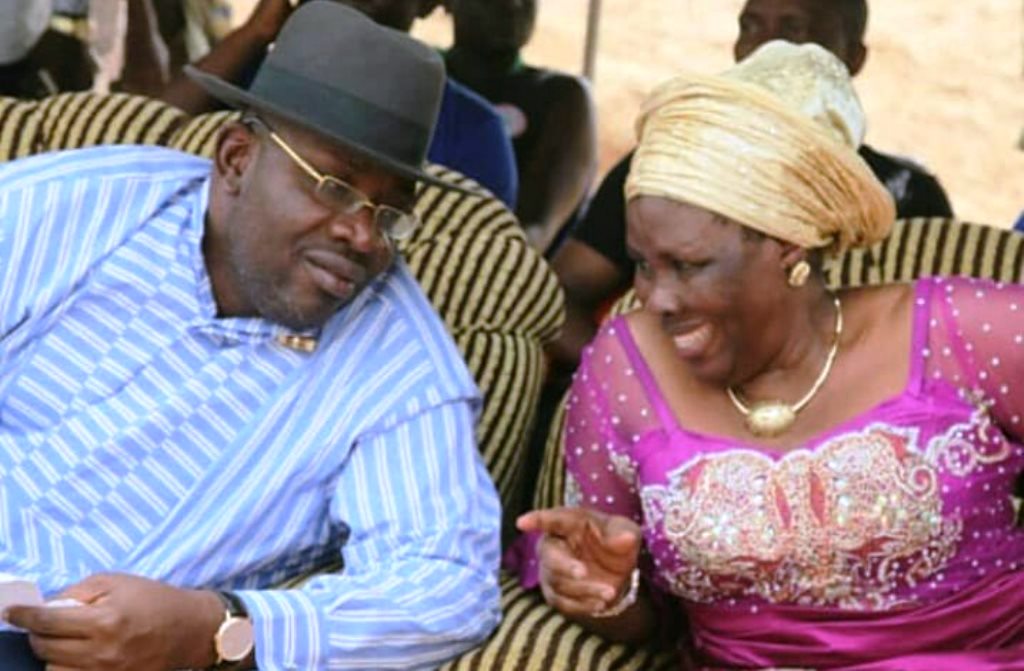Some medical practitioners on Tuesday in Lagos said the belief that sucking or fondling of a woman’s breasts could prevent lumps was not scientifically proven.
A Consultant Oncologist, Dr Atara Nketim, a Medical Researcher, Dr Bamidele Iwalokun and a Consultant Paediatrician, Dr Adaugo Onyedinma, spoke with the News Agency of Nigeria (NAN) in Lagos.
The experts spoke against the backdrop of claims in some quarters that sucking or fondling a woman’s breasts by her husband has some health benefits including prevention of breast cancer and other related diseases.
However, a researcher in U.S, Gautham Venugopalan, said in an online publication, Daily Mail Reporter, that a little squeeze might be all that “it takes to prevent malignant breast cells triggering cancer”.
According to him, laboratory experiments showed that applying physical pressure to the cells guided them back to a normal growth pattern.
“Scientists believe the research provides clues that could lead to new treatments.
“Squashing breast cells encouraged them to grow in a regular way. However, scientists don’t believe compressing breast tissue would have a beneficial effect.
“People have known for centuries that physical force can influence our bodies,’ Venugopalan, a leading member of the research team at the University of California in Berkeley, US, said.
NAN reports that the World Breastfeeding Week is an annual celebration which is being held every year from Aug. 1 to Aug. 7 in more than 120 countries.
Iwalokun, a molecular biologist at the Nigerian Institute of Medical Research (NIMR), Yaba, Lagos, said there was no scientific back up to the assertion.
He said that fondling of woman’s breasts could not prevent lumps and breast cancer.
Iwalokun said, “There is no research backing to prove that fondling of breasts prevents breasts from growing lumps or developing breast cancer.’’
Also, Nketim, a Consultant Oncologist with the University College Hospital (UCH), Ibadan, said there was no scientific evidence that sucking, squeezing or fondling breasts could prevent lumps or cancer.
Nketim said that husbands might, however, be able to detect if there were lumps in their wives’ breasts at an early stage through fondling of breasts.
“I have seen five patients in my experience where the husbands are actually the ones who discovered lumps in their wives’ breasts and not the wives themselves.
“So, it is in this aspect that I will support husbands fondling the breasts to help their wives detect early any lump that can develop.
“But, I do not have any scientific evidence to say that fondling can actually prevent it,’’ he said.
Another expert, Onyedinma, who works at a Lagos-based hospital, Samaria Hospital, said: “There is no scientifically proven that breast sucking, fondling and squeezing on women’s health.
“Breast sucking, squeezing and fondling is usually done during sexual intercourse and may provide some sexual excitement for the couple.”
She said that activities of husbands fondling their wives’ breasts only gave the couple excitement.
The expert said, however, that breastfeeding a baby was beneficial to both the woman and her baby.
According to her, breastfeeding is the process whereby a baby sucks the mother’s breasts in order to get breast milk.
“There are benefits of breastfeeding, mainly, because of the low levels of the hormone estrogen and higher levels of prolactin and oxytocin present in breastfeeding mothers.
“Also, exclusive breastfeeding reduces the risk of breast, ovarian and uterine cancers, promotes weight loss and proper contraction of the womb after delivery.
“It helps with family planning and child spacing and boosts the mother’s emotional health by promoting mother and child bonding,” the paediatrician said.
However, speaking to NAN about their experiences, some men and women said that they derived pleasure in the breasts being fondled by their husbands, while some said they did not.
A trader, Mrs Patricia Bassey, said that she enjoys being fondled by her husband, because it made her happy.
Bassey said: “Breasts were created by God for couples to enjoy the benefits.
“I enjoy being a woman for that reason and my husband likes it; it makes our relationship enjoyable. “
A housewife, Mrs Veronica Odey, who lives in Ikotun-Egbe, a suburb of Lagos said that fondling of her breasts was not pleasurable, especially when she was still breastfeeding.
“Before I had my first baby, I did not like being fondled; I still did not like it after I had my baby.
“But, I have been advised by my doctor to allow my husband to fondle it, because it has some benefits.
“My doctor told me that fondling can help detect any lump that may develop.
“I have also read articles put up by medical experts on the subject; so, I am beginning to know the benefit of that aspect,“ Odey said.
In her remarks, a business woman, Mrs Joyce Adelakun, a resident of Surulere, Lagos, said that she was aware of the benefits of fondling and squeezing the breasts, because she had a lump removed.
Adelakun said: “A lump developed after weaning my second child and it was my husband who discovered it, because he fondles it a lot.
“Apart from the pleasure it gives, it is very important for women to be conscious of the fact that lumps can develop in their breasts and allow their husbands to play with them.
A primary school teacher in Ago area of Lagos, Mr Onyi Obioma, said he loved to fondle his wife`s breasts, because of the special sensation it gave them.
“Once I just take my wife`s bra off, the first thing I do is to slowly kiss her nipples and the areas around the breast.
“I watch her reactions before getting into the real business,” Obioma said.
Commenting, Mr Rotimi Akintade, a businessman in Ajah, said that he loves big breast because it was naturally appealing to him and adds to women’s beauty.
Akintade said that men naturally, were born to like breast, because when we see them, we appreciate and arouse us.
“God created breasts in a special way because we do not know exactly what they look like, but gather enough data which makes us to be imbalance.
“I personally think sizes of breasts is overrated. I rate breasts, not on size, but on firmness, that is what makes me fall in love with my wife’s breasts.
“In spite the fact that she has given birth to three children, I still fondle her breasts almost every night and her breasts are still firm and round in shape,” he said.
Speaking, Mr Adebayo Onipede, a lawyer, said that people has the misguided idea that breasts were just for babies.
Onipede said that breasts were meant for both men and babies which was the reason why most men see their babies as competitors when their wives were breastfeeding.
“Most men want their babies to be breast fed within their six months and a year, while men nurture on the breasts for the rest of their lives.
“Men are stimulated by what they see. Men get turned on by the sight or imagination of a woman’s body and that starts with the breasts.
“Breasts always catch the attention of every male, especially the big or firm ones. Men love how the breasts feel in their hands and women like when their breasts get fondled of.
“I really love big breasts because they are comforting, which makes me to love resting my heads on them and sight of them can make my bad mood to disappear,” he said.
In her comments, Miss Juliana Gold, a beauty expert in Ajah, Lagos, said most women loves when their partners fondle their breasts sexually and in the right way.
Gold said that fondling of breasts add excitements to sexual intercourse and also strengthen her desire to bond with her partner.
“Some men do not know how to fondle their partners’ breasts, they squeeze and damage their woman’s breast and nipple.
“Majority of men loves breasts and most women use it as a weapon to distract men.
“We discovered that some women do not wear bra, regardless of whether their breasts are large or small to cause confusion for men,” she said.
NAN




